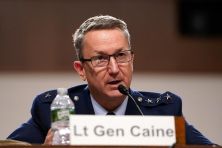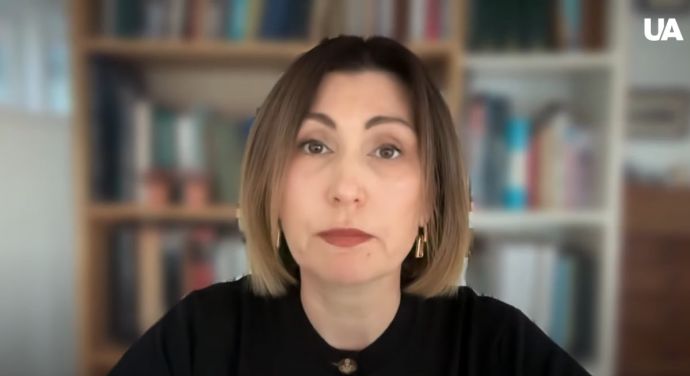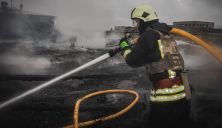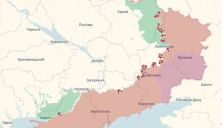In an interview with Svitlana Romanko, founder of the Razom We Stand NGO, we discussed the implications of a gas transit halt in Europe, Russia and Ukraine. While the majority of EU countries have diversified supplies, Slovak PM Fico is interested in continuing the transit and collecting transition fees, as it was before.
— Today, we would like to discuss the end of an era—the end of Russian gas in Europe—with January 1st stopping all the transit to European nations. What are the implications? What is the significance of this event, underscored by some media? What is the real significance of this to European politics?
— Yes, this event, in particular the end of gas transits through Ukrainian territory, was long anticipated since 2019 when this gas contract was concluded between Ukraine and Russia. And now we celebrate this stop of gas transit because it has huge symbolic, emotional, and also security meaning—not just for Ukraine, but also for Europe.
And speaking about implications, many experts, me included, can’t see any negative ones because Europe is well-prepared, including 32 billion cubic meters of gas in Ukrainian storages right now. They are well-prepared. Ukraine will lose some transportation costs, but these were not that significant. The most affected parties will be Russia itself and also Moldova, which we can discuss further.
— Yes, and before we go to Moldova, we are to talk about Robert Fico—the mouthpiece, the roar of Kremlin gas interests in Europe. Right now, even Viktor Orbán, a longstanding supporter of Russian energy in Europe, is not so sincere about supporting gas imports from Russia. And we see a direct conflict between Ukraine and Slovakia—between the leaderships of these countries in the media sphere. On Twitter, President Zelenskyy and Prime Minister Fico are exchanging some debates.
Why is the interest of Robert Fico, perhaps his personal one, in continuing gas transit?
— Not just personal; it’s also a domestic political concern for Slovakia because they did barely anything to diversify their gas supply from Russia, which was the cheapest. Transportation through the pipelines via Ukrainian territory was the cheapest option, as we already know.
Slovakia currently is 50% dependent on Russian gas because it makes up 20% of their energy mix, even now. They will lose a huge amount of gas and won’t be able to replace it with other sources because they didn’t plan for it. They didn’t make a second thought or a Plan B about what would happen if Ukraine stopped gas transit through the pipeline—the only one left since Soviet times.
As we know, it’s been 40 years since Russia first started this gas route through Ukraine. And Ukraine mostly spent the transit fees on servicing and maintaining the gas network and pipeline in good technical condition. So, we are a very reliable partner to the European Union.
Fico, however, has little choice but to agree with European politics and policies. Of course, he is complaining. We can see him complaining to many media outlets and speaking openly about rising prices and an industry collapse. Yet, he had two and a half years to think about this and make alternative plans.
Instead, Slovakia has remained a final destination point for Russian gas transit through Ukraine, which we all knew would eventually end. Russia itself will lose approximately $6 billion annually—different assessments range between $4.5 billion and $6.5 billion—that it used to earn from the gas transit through Ukraine. Now that revenue is gone. So, they will bear huge financial losses alongside Slovakia, which, as we know, is also a big supporter of Russia within the European Union.
— Considering Slovakia’s political inner reasons influencing its government’s decisions and stance, how does stripping Europe of Russian gas—this “Russian gas needle”—change the future of Europe? Many times, we’ve heard propaganda narratives suggesting Europe cannot go without Russian gas, that Europe will freeze. Yet, here we are with no gas from Russia to Europe, and everyone seems fine for now. How will this change the future of Europe?
— This has already changed the future of Europe. Before the full-scale Russian invasion of Ukraine, the European Union consumed about 300 billion cubic meters of Russian gas, which accounted for 40% of its energy supply.
Now, that reliance has been reduced to an insignificant amount, just 8% of their energy mix. However, I must point out an important fact: Europe has already increased its imports of LNG (liquefied natural gas) from Russia. This is the same liquefied gas, but it is much more expensive because it needs to be frozen to minus 60 degrees Celsius and then transported via huge ice-breaking tankers.
Russia currently lacks sufficient tankers for this process. Additionally, sanctions imposed in November of last year by the U.S. have cut Russia’s access to the European market almost entirely. They maintain only a small share of LNG exports.
We hope the EU will impose a full ban on Russian LNG within the next six months. We are working towards this with our diplomatic institutions, the presidential office, international partners, and the Polish delegation to the EU, which recently assumed the presidency of the European Council.
We call on Europe to go further, to truly ensure energy security, and fully ban the consumption of Russian gas in all its forms, including LNG.
— That is encouraging news. Now, returning to non-EU countries like Moldova, which were not as prepared, Moldova has some gas reserves that will last until March. However, the Transnistria region—occupied by Russia—has no power, no heating, and no gas supply since January 1st. Why is that? Why doesn’t the region have its own gas supply? Could this be a lever used by the Moldovan administration to bring Transnistria back into Moldova’s energy system?
— There are various reasons for this. Firstly, it was Russia that cut off Moldova’s gas supply starting January 1st. Moldovans woke up to cold houses and no gas. They even had to declare a 60-day state of emergency.
Moldova cannot currently diversify its gas supply or replace Russian gas with alternatives. They will have to cut their overall gas consumption and endure the cold winter—a situation that is, of course, difficult for Moldovan citizens.
Transnistria is particularly vulnerable, being heavily reliant on Russian gas and effectively outside Moldovan law. Russia claims Moldova owes them a significant debt for previously consumed gas, though the details remain unclear.
More importantly, Russia has long used gas as a geopolitical weapon, not only against Moldova but also against Europe and Ukraine. Despite this, Ukraine has managed to stop Russian gas transit entirely, a historic achievement with significant implications for the region.
— This situation is reminiscent of Yanukovych-era tactics when Russia used gas debts to blackmail Ukraine into unfavorable agreements. Now, as you mentioned earlier, the Druzhba pipeline continues to transfer oil. Hungary is one of the main recipients of this oil, correct?
— es, Hungary is a major recipient. Unfortunately, Russian oil still flows to European countries in significant amounts. While the EU imposed an oil ban at the start of the full-scale invasion, it only became fully effective at the end of 2022.
Even with the ban, there are loopholes—like refined oil products and the shadow fleet involved in transporting these goods. This remains an ongoing challenge for European energy independence.
Read also: Could F-16 and Mirage-2000 Save Ukraine from Glide Bombs? Interview with Frank Ledwidge










